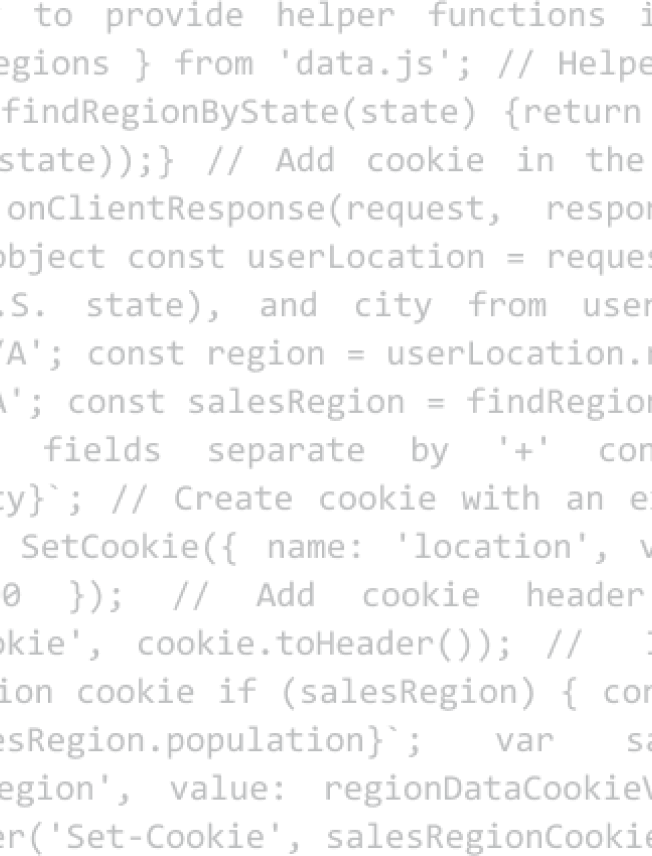Validating promo codes at the edge reduces latency and improves the user experience by quickly confirming the validity of the entered promo code. Storing promo codes and their valid date ranges in EdgeKV allows for efficient and secure validation without additional load on the origin server.
Loading...https://www.edgecompute.live/edgekv/ecom-promocode/ecom-promocode.html
Copied to clipboard!
The Promo Code Validation example demonstrates how you can use EdgeWorkers and EdgeKV to validate promo codes at the Edge. A list of promo codes with valid date ranges is stored in EdgeKV. It also shows how you could use the getJson() helper method.
Core Concepts
Helps developers understand the fundamental processes needed for edge computing.
Distributed Data
Pushing data to the edge speeds up websites by avoiding central bottlenecks.
Ease Development
Enable developers to modify application behavior without touching origin server logic.
Reduce Latency
Speed up response times by moving work closer to users.
Related Examples
View More
A/B Testing
Randomly assigns a new user to a group for A/B testing. The assignment is stored in a cookie and passed to the origin in a query parameter. The A/B group can be forced via a query string parameter for easy testing. The group names, percentage split, cookie name, and query parameter name are configured through constants in the EdgeWorker JavaScript module.

Multivariate Testing
Enables multivariate testing where multiple tests are executed simultaneously. A single variant is selected for each test, and variants are randomly assigned to new users, with each selected variant stored in a cookie and passed to the origin in a query string parameter. The probability of choosing each variant can be configured by adjusting the weight of each variant. Variants can be forced via a query string parameter for easy testing. Custom actions can be executed in the request and/or response phase of each variant, such as routing a variant to a different origin or constructing a response at the edge.